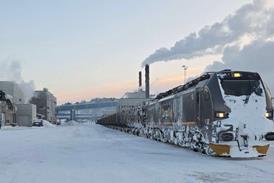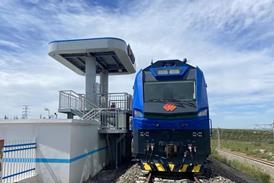Private railways and the public good
Sir - I read your latest Comment (RG 6.08 p339) with great interest, and feel that your approach is very balanced. Obviously 'one size does not fit all', and various countries have had different experiences with privatisation and/or nationalisation, vertical integration and/or separation.
I was never very enthusiastic about the total separation of track from operations, and evidence suggests that you are correct in stating that whilst a modicum of competition benefits European freight operations, 'this model may not prove sustainable in the long term'. After Poland embraced the separation of infrastructure from operations, the first years offered some encouragement. However the first quarter of 2008 saw a sharp drop in rail shipments and a 12% jump in road haulage.
The universal problem remains. The freight operator can identify a prospective market, but if this requires any infrastructure changes (extra sidings, loading docks, capacity enhancement), it is not clear how this business opportunity can be signalled in practical terms to induce the track authority to undertake the necessary work. Who is supposed to pay for it? What if the prospective market turns disappointing? Who will cover the costs?
In the American model the roles are clear. The Business Development office identifies opportunities, Operations will assess the impact on the ?existing traffic, and the Engineering and Maintenance of Way departments can price and execute the work required promptly. Co-ordination is straightforward, as the entire process takes place under one, relatively small, roof.
I am sure that all of this will remain a very big issue over the coming years, particularly in light of rising fuel prices and road congestion. For the sake of the railways, please continue!
Piotr Kumelowski
Forest Hills, New York, USA
















